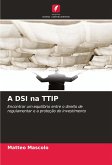Bachelor Thesis from the year 2010 in the subject Law - Civil / Private, Trade, Anti Trust Law, Business Law, grade: 1,0, Hamburg University of Applied Sciences, language: English, abstract: In 2009 the WTO Panel China-Audiovisual Products was the first to rule on an Article XX lit a) GATT defence used to legitimize trade restrictions on moral grounds. So far countries have been reluctant to employ the vaguely defined public morals clause, but trends suggest that an augmented use is to be expected. The WTO has provided little indication as to which and whose morals are covered by the exception which has led to the widespread fear that the public morals clause might be abused to enforce unilateral policies against the principles of free trade. This paper takes an abstract approach to the scope and content of the public morals exception of the GATT. Critically examining the drafting history, legal practice and current scholarly research the note concludes that a large variety of different values are covered by the concept of public morality. However the note suggests that an abuse of the exception is not to be expected as the high boundaries set by the WTO to the application of the exception render the legalization of most policy objectives highly unlikely.
Hinweis: Dieser Artikel kann nur an eine deutsche Lieferadresse ausgeliefert werden.
Hinweis: Dieser Artikel kann nur an eine deutsche Lieferadresse ausgeliefert werden.








